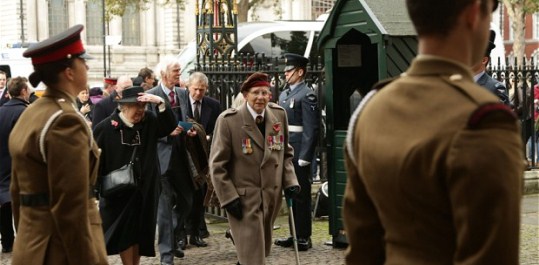
By Mark Tooley
If there is any advantage to a state church, it is the religious stagecraft it can produce for momentous occasions of state that crave spiritual sanction. For all its faults, the Church of England remains expert at such events. Its latest success was commemorating at Westminster Abbey a couple weeks ago the 70th anniversary of the decisive Battle of El Alamein.
The battle in Egypt’s western desert defeated German Field Marshall Erwin Rommel, celebrated as the “Desert Fox,” after his string of victories across North Africa. El Alamein was a tonic for somber Britain, which had weathered three years of nearly continuous defeat. Prime Minister Winston Churchill at the time called it a “bright gleam that caught the helmets of the soldiers, and warmed and cheered all our hearts.” He ordered Britain’s church bells rung nationwide for the first time since World War II had begun. “Before Alamein we never had a victory,” he later said. “After Alamein we never had a defeat.” The battle’s hero was General, later Field Marshall, Bernard Montgomery, who would remain Britain’s most celebrated wartime commander. Clashing with American generals like Dwight Eisenhower and George Patton, Montgomery typically fairs poorly in American produced dramas, such as the 1971 academy award winning Patton with George C. Scott. Indisputably eccentric, if maybe not always as preening and insufferable as his American allies portrayed him, Montgomery was still a suitable military hero for a Britain desperately in need of one.
Montgomery’s 84-year-old son, the current Viscount of El Alamein, wonderfully read from St. Paul’s Letter to the Romans at the commemorative service: “Let us then lay aside the works of darkness and put on the armor of light.” Over 40 survivors of the battle attended the evensong worship at Westminster Abbey. They were a small remnant of the 200,000 British Commonwealth and other Allied forces at the battle in 1942, about 4,000 of whom were killed. At stake had been the Suez Canal, the oil of the Middle East, and ultimately strategic access to the underbelly of the Soviet Union, where most of the German army was then locked in murderous struggle.
Read more here.
No comments yet



